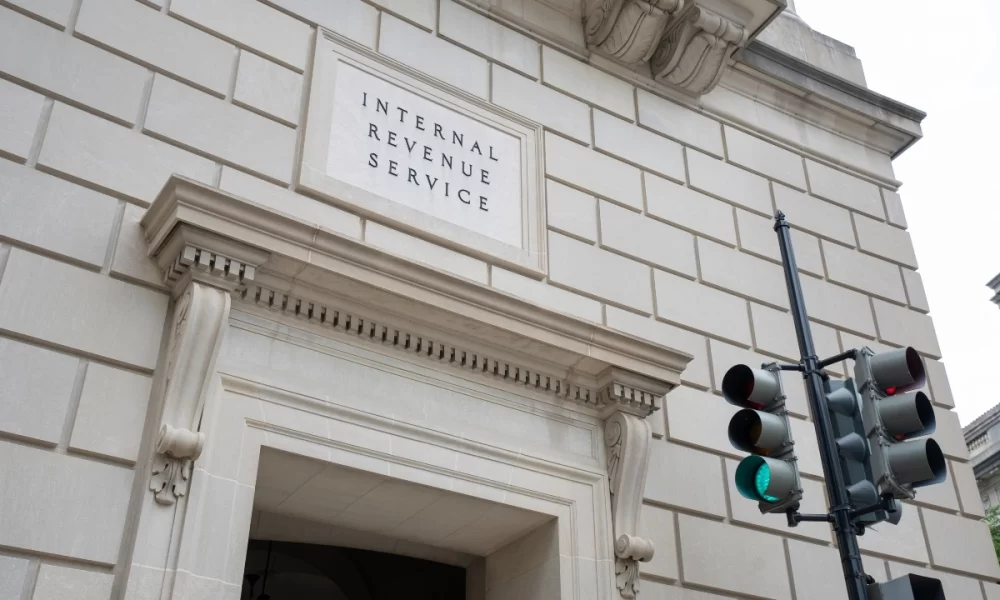Business
Small marijuana businesses take advantage of purported 280E loophole

A growing number of marijuana businesses are taking advantage of a tax strategy that might reduce the costly financial burden imposed by Section 280E of the federal tax code.
Small businesses with a gross income of less than $27 million are able to deduct expenses to a “near-legal” degree, according to accountants specializing in cannabis.
By one estimate, marijuana companies paid nearly $2 billion more in federal taxes than mainstream businesses.
But not all certified public accountants are on board with using the relatively new tax strategy, and they warn cannabis entrepreneurs that using it could be risky.
Section 280E currently prevents plant-touching companies from deducting many traditional business expenses because marijuana remains a Schedule 1 substance and illegal under federal law.
In recent years, a growing number of accountants and professionals specializing in cannabis discovered a small business provision within 2017’s Tax Cuts and Jobs Act.
The provision, called Section 471(c), was designed to simplify accounting for inventory and cost of goods sold (COGS) for businesses with less than $25 million in gross income.
“For example, if a business wants to include 100% of its facility costs in its inventory calculation, it could do that if it is based on the company’s books and records,” said Justin Botillier, the founder and CEO of Oregon-based accounting firm Calyx CPA.
In other words, a cannabis retailer could include expenses associated with renting a storage facility for inventory in its cost of goods sold.
For some businesses, the tax savings from including such expenses under inventory costs can be significant.
“We can get taxes down to near-legal levels,” Botillier said in an interview with MJBizDaily.
Section 280E has been one of the toughest barriers to success for U.S. cannabis businesses.
Tax liabilities are so high for some multistate operators, they’re deferring payments while weighing the impact of penalties against the higher costs of raising capital.
Chicago-based Verano Holdings, for example, will carry a balance of roughly $250 million in taxes owed after paying about $100 million.
While Section 471(c) is helpful only to smaller companies, it “has become the single most important development for the cannabis industry,” said Nick Richards, the Denver-based partner and co-chair of cannabis law practice group at Greenspoon Marder.
Richards explained the legal background of 471(c) in a letter to the editor in a recent edition of Tax Notes, a tax-focused publication.
According to Richards, costs disallowed under Section 280E do not “disappear” – they just cannot be deducted under the old accounting methods.
But under Section 471(c), the limitations of the old accounting methods no longer apply and some of the costs can be recognized as COGS.
This creates the possibility of recapturing costs that were previously disallowed under 280E before the use of the 471(c) method.
But while a growing number of CPAs are using it, there are still a number of accountants who won’t use 471(c), arguing that 280E disallows any kind of deduction and could invite audits.
The background
The Tax Cuts and Jobs Act was passed in 2017.
Under Section 471(c), companies with a gross income of $25 million or less can choose if and how they track and report inventory (now $27 million, adjusted for inflation).
That includes capitalizing overhead, according to Botillier, meaning a business could include payroll and facility-related costs in its inventory calculation – and therefore deduct some of them from gross receipts.
Some accountants declared that “280E was dead” for small cannabis businesses – and the Treasury Inspector General for Tax Administration took notice.
In January 2021, the IRS passed another regulation stating that anyone subject to 280E – namely, marijuana businesses – can’t use 471(c) to reduce the impact of 280E.
But some believe the IRS “overstepped,” according to Botillier.
“Fortunately, for businesses subject to 280E, the IRS does not write the tax code; Congress does,” he said.
To Richards, 471(c) can still be used by small cannabis businesses because it allows taxpayers to add ordinary and necessary business expenses – such as payroll – to COGS.
Mitigating risks
Richards said he has seen clients use 471(c) also get audited by the IRS, but, in each case, the tax agency issued “no change” letters, meaning there were no penalties issued or corrections made.
That said, Botillier warned that accountants must make correct inventory elections, include the proper disclosures and should never attempt to write off all overhead expenses to avoid 280E entirely.
“We do not recommend kicking the hornet’s nest,” he said.
Accuracy is key to disputing a tax position with the IRS, he said, so maintaining good books and records that reflect the company’s use of the 471(c) inventory methodology is essential.
Botillier also advised that accountants in the marijuana space ensure there’s a narrative for justifying the use of 471(c) – and that narrative cannot be because you’re trying to get out of 280E.
“Instead, the reason we use 471(c) is to simplify our inventory-reporting process, to avoid the complicated allocation methods we used to use prior to 471(c),” he said.
Botillier said it’s up to accountants to decide how aggressive or conservative they want to be.
“One thing is for sure,” he told MJBizDaily via email.
“Doing nothing to mitigate 280E is a mistake and very costly.”
Source: https://mjbizdaily.com/small-marijuana-businesses-take-advantage-of-purported-280e-loophole/